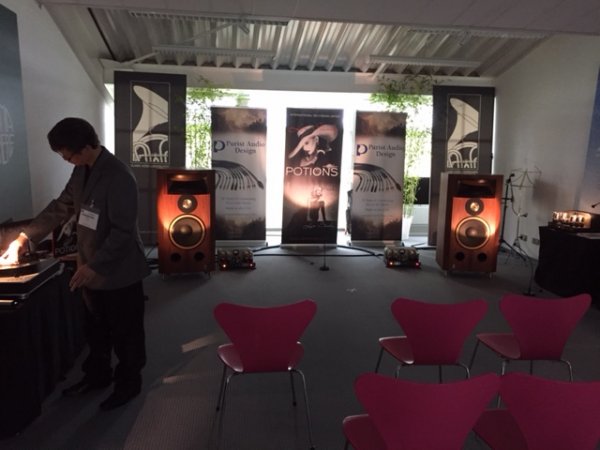Aah what a wonderful sweeping generalization. Every speaker has a performance envelope. Each has its strengths and weaknesses in terms of both output and room integration. This all started when I said Horses for Courses. Do indulge me this. What reason would one need to choose a Cessaro over a GRIMM?
Although perfectly true, I often see people asking- What is the best speaker for rock and roll (or classical or jazz)? The answer is the best speaker period is the best speaker for rock or classical or whatever. Speakers and the electronics that drive them have no musical preference. I honestly saw a thread recently where a guy wanted to know which speaker was best for 1980s downtempo! Honestly, there is no form of music that particularly favors one band of frequencies over the other. The idea that there is a best speaker for a particular form of music is one of the most common myths in the world of speakers, an oddly enough seems to be something that persists with the lo and mid-fi end of the market. It certainly has no place in high end...
not true. but it's not such a simple thing to grasp.
last fall I had some amps brought to my room as much for the seller/distributor to see how they would do as for me to experience them. they were 60 watt monoblock OTL's, wonderful sounding amps, not cheap. my speakers are 96db 6 ohm, and have powered bass units....so an easy load.
so it ought to work just fine.
and it did on simple music. small scale vocals, string quartets, small combo jazz. when you played large scale music they simply could not handle controlling the speaker and maintaining the scale and cohesion on musical peaks. there was a point past which you did not want to go there.
the seller/distributor said these were amps ideal for horns, and other hi efficient speakers that don't aspire to do all types of music effectively.
I re-inserted my dart monos and right away the whole musical universe was ours to travel.
and until you heard what the big darts could do on the large scale music you did not realize just how stressed the over $70k 60 watt OTL's were. the difference was dramatic.
can horns and modest power play all kinds of music? sure. can they do the music 100% justice? depends on your reference.
horses for courses.
The problem here of course is that the match between the amplifier and the speaker is more than just reference or preference. If the amp is unsuited for the load it does a disservice to the amp and a disservice to the loudspeaker. A 60-watt OTL, despite being $70,000, is not going to have a very low output impedance and one has to be careful about the speakers used with it. Trust me on this one- we've built more 60-watt OTLs than anyone else in the world... My bet is if you had used a set of ZEROs (
www.zeroimpedance.com) your experience may have been different...
However as far as horns go they have the capacity to be some of the most musical speakers made. Here is our installation at the recent Munich show:

These speakers (Classic Audio Loudspeakers model T-3) are 98 db 1 watt/1 meter, 16 ohms, go from 20Hz to 35KHz and employ field coil drivers. The midrange horn uses a 4" diameter pure beryllium compression driver with a Kapton surround. It has no breakups until about 35Khz- its very smooth and fast. Field coils have been the rising star in dynamic drivers for several years. Like ESLs, the motive force (magnetic field in this case) does not sag when the amplifier energizes the driver (which is unlike permanent magnets) and so they tend to be faster and lower distortion as a result. These speakers are some of the most musical and revealing I have heard (I use a number of my own recordings which I have on LP for reference). They retail in the US for about $45,000/pair. Usually they are delivered by the manufacturer and setup personally. The amps in the photo are 60-watt OTLs by the way (although costing only about $7100/pair); we had essentially unlimited power despite playing tracks with Lyn Stanley singing live.
I do see this as a good direction in loudspeakers. If you think about it, its not a good idea for a speaker to be 'difficult to drive' as no matter what amplifier you have, you are forcing it to work harder which means it will make more distortion. Distortion, after all these decades, is still the name of the game and keeping it down rather than up is important. Even transistor amplifiers (despite making less power) will sound smoother and more detailed on these speakers because they make less distortion. You can see it in their specs and you can hear it. So horns are a good thing, especially when connected to higher impedances like 8 or 16 ohms.







